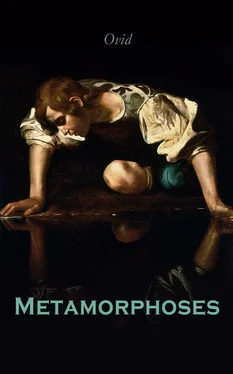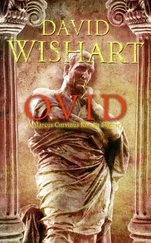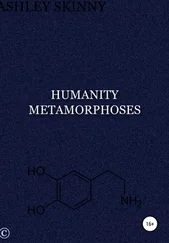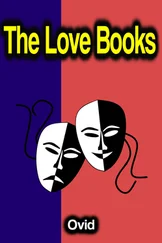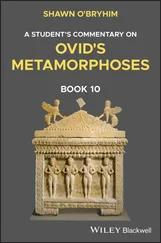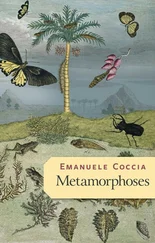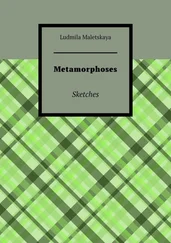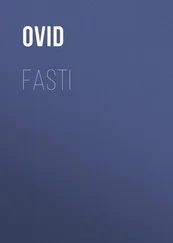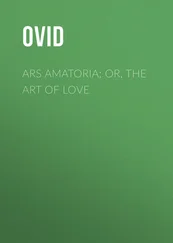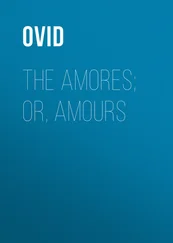Ovid - Metamorphoses
Здесь есть возможность читать онлайн «Ovid - Metamorphoses» — ознакомительный отрывок электронной книги совершенно бесплатно, а после прочтения отрывка купить полную версию. В некоторых случаях можно слушать аудио, скачать через торрент в формате fb2 и присутствует краткое содержание. Жанр: unrecognised, на английском языке. Описание произведения, (предисловие) а так же отзывы посетителей доступны на портале библиотеки ЛибКат.
- Название:Metamorphoses
- Автор:
- Жанр:
- Год:неизвестен
- ISBN:нет данных
- Рейтинг книги:3 / 5. Голосов: 1
-
Избранное:Добавить в избранное
- Отзывы:
-
Ваша оценка:
- 60
- 1
- 2
- 3
- 4
- 5
Metamorphoses: краткое содержание, описание и аннотация
Предлагаем к чтению аннотацию, описание, краткое содержание или предисловие (зависит от того, что написал сам автор книги «Metamorphoses»). Если вы не нашли необходимую информацию о книге — напишите в комментариях, мы постараемся отыскать её.
Metamorphoses — читать онлайн ознакомительный отрывок
Ниже представлен текст книги, разбитый по страницам. Система сохранения места последней прочитанной страницы, позволяет с удобством читать онлайн бесплатно книгу «Metamorphoses», без необходимости каждый раз заново искать на чём Вы остановились. Поставьте закладку, и сможете в любой момент перейти на страницу, на которой закончили чтение.
Интервал:
Закладка:
The brutal and savage nature of the early races of men may also have added strength to the tradition that they derived their original from stones. After the inundation, Deucalion is said to have repaired to Athens, where he built a temple to Jupiter, and instituted sacrifices in his honor. Some suppose that Cranaus reigned at Athens when Deucalion retired thither; though Eusebius informs us it was under the reign of Cecrops. Deucalion was the son of Prometheus, and his wife Pyrrha was the daughter of his uncle, Epimetheus. After his death, he received the honor of a temple, and was worshipped as a Divinity.
FABLE XI.
The Earth, being warmed by the heat of the sun, produces many monsters: among others, the serpent Python, which Apollo kills with his arrows. To establish a memorial of this event, he institutes the Pythian games, and adopts the surname of Pythius.
The Earth of her own accord brought forth other animals of different forms; after that the former moisture was thoroughly heated by the rays of the sun, and the mud and the wet fens fermented with the heat; and the fruitful seeds of things nourished by the enlivening soil, as in the womb of a mother, grew, and, in lapse of time, assumed some regular shape. Thus, when the seven-streamed Nile 70has forsaken the oozy fields, and has returned its waters to their ancient channel, and the fresh mud has been heated with the æthereal sun, the laborers, on turning up the clods, meet with very many animals, and among them, some just begun at the very moment of their formation, and some they see still imperfect, and as yet destitute of some of their limbs; and often, in the same body, is one part animated, the other part is coarse earth. For when moisture and heat have been subjected to a due mixture, they conceive; and all things arise from these two.
And although fire is the antagonist of heat, yet a moist vapor creates all things, and this discordant concord is suited for generation; when, therefore, the Earth, covered with mud by the late deluge, was thoroughly heated by the æthereal sunshine and a penetrating warmth, it produced species of creatures innumerable; and partly restored the former shapes, and partly gave birth to new monsters. She, indeed, might have been unwilling, but then she produced thee as well, thou enormous Python; and thou, unheard-of serpent, wast a source of terror to this new race of men, so vast a part of a mountain didst thou occupy.
The God that bears the bow, and that had never before used such arms, but against the deer and the timorous goats, destroyed him, overwhelmed with a thousand arrows, his quiver being well-nigh exhausted, as the venom oozed forth through the black wounds; and that length of time might not efface the fame of the deed, he instituted sacred games, 71with contests famed in story , called “Pythia,” from the name of the serpent so conquered. In these, whosoever of the young men conquered in boxing, in running, or in chariot-racing, received the honor of a crown of beechen leaves. 72As yet the laurel existed not, and Phœbus used to bind his temples, graceful with long hair, with garlands from any tree.
EXPLANATION.
The story of the serpent Python, being explained on philosophical principles, seems to mean, that the heat of the sun, having dissipated the noxious exhalations emitted by the receding waters, the reptiles, which had been produced from the slime left by the flood, immediately disappeared.
If, however, we treat this narrative as based on historical facts, it is probable that the serpent represented some robber who infested the neighborhood of Parnassus, and molested those who passed that way for the purpose of offering sacrifice. A prince, either bearing the name of Apollo, or being a priest of that God, by his destruction liberated that region from this annoyance. This event gave rise to the institution of the Pythian games, which were celebrated near Delphi. Besides the several contests mentioned by Ovid, singing, dancing, and instrumental music, formed part of the exercises of these games. The event which Ovid here places soon after the deluge, must have happened much later, since in the time of Deucalion, the worship of Apollo was not known at Delphi. The Goddess Themis then delivered oracles there, which, previously to her time, had been delivered by the Earth.
FABLE XII.
Apollo, falling in love with Daphne, the daughter of the river Peneus, she flies from him. He pursues her; on which, the Nymph, imploring the aid of her father, is changed into a laurel.
Daphne, the daughter of Peneus, was the first love of Phœbus; whom, not blind chance, but the vengeful anger of Cupid assigned to him.
The Delian God , 73proud of having lately subdued the serpent, had seen him bending the bow and drawing the string, and had said, “What hast thou to do, wanton boy, with gallant arms? Such a burden as that better befits my shoulders; I, who am able to give unerring wounds to the wild beasts, wounds to the enemy, who lately slew with arrows innumerable the swelling Python, that covered so many acres of land with his pestilential belly. Do thou be contented to excite I know not what flames with thy torch; and do not lay claim to praises properly my own.”
To him the son of Venus replies, “Let thy bow shoot all things, Phœbus; my bow shall shoot thee; and as much as all animals fall short of thee, so much is thy glory less than mine.” He thus said; and cleaving the air with his beating wings, with activity he stood upon the shady heights of Parnassus, and drew two weapons out of his arrow-bearing quiver, of different workmanship; the one repels, the other excites desire. That which causes love is of gold, and is brilliant, with a sharp point; that which repels it is blunt, and contains lead beneath the reed. This one the God fixed in the Nymph, the daughter of Peneus, but with the other he wounded the very marrow of Apollo, through his bones pierced by the arrow . Immediately the one is in love; the other flies from the very name of a lover, rejoicing in the recesses of the woods, and in the spoils of wild beasts taken in hunting , and becomes a rival of the virgin Phœbe. A fillet tied together 74her hair, put up without any order. Many a one courted her; she hated all wooers; not able to endure, and quite unacquainted with man, she traverses the solitary parts of the woods, and she cares not what Hymen, 75what love, or what marriage means. Many a time did her father say, “My daughter, thou owest me a son-in-law;” many a time did her father say, “My daughter, thou owest me grandchildren.” She, utterly abhorring the nuptial torch, 76as though a crime, has her beauteous face covered with the blush of modesty; and clinging to her father’s neck, with caressing arms, she says, “Allow me, my dearest father, to enjoy perpetual virginity; her father, in times, bygone, granted this to Diana.”
He indeed complied. But that very beauty forbids thee to be what thou wishest, and the charms of thy person are an impediment to thy desires. Phœbus falls in love, and he covets an alliance with Daphne, now seen by him, and what he covets he hopes for, and his own oracles deceive him; and as the light stubble is burned, when the ears of corn are taken off, and as hedges are set on fire by the torches, which perchance a traveller has either held too near them, or has left there , now about the break of day, thus did the God burst into a flame; thus did he burn throughout his breast, and cherish a fruitless passion with his hopes. He beholds her hair hanging unadorned upon her neck, and he says, “And what would it be if it were arranged?” He sees her eyes, like stars, sparkling with fire; he sees her lips, which it is not enough to have merely seen; he praises both her fingers and her hands, and her arms and her shoulders naked, from beyond the middle; whatever is hidden from view, he thinks to be still more beauteous. Swifter than the light wind she flies, and she stops not at these words of his, as he calls her back:
Читать дальшеИнтервал:
Закладка:
Похожие книги на «Metamorphoses»
Представляем Вашему вниманию похожие книги на «Metamorphoses» списком для выбора. Мы отобрали схожую по названию и смыслу литературу в надежде предоставить читателям больше вариантов отыскать новые, интересные, ещё непрочитанные произведения.
Обсуждение, отзывы о книге «Metamorphoses» и просто собственные мнения читателей. Оставьте ваши комментарии, напишите, что Вы думаете о произведении, его смысле или главных героях. Укажите что конкретно понравилось, а что нет, и почему Вы так считаете.
